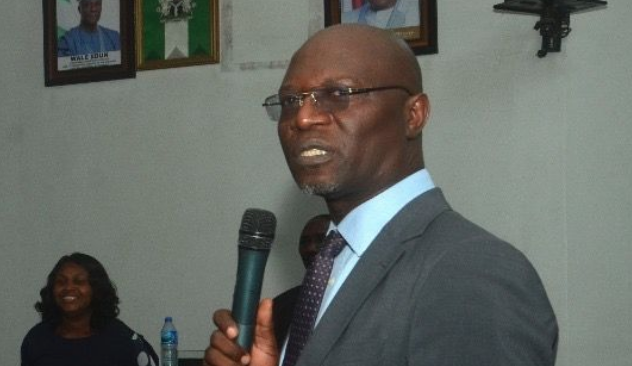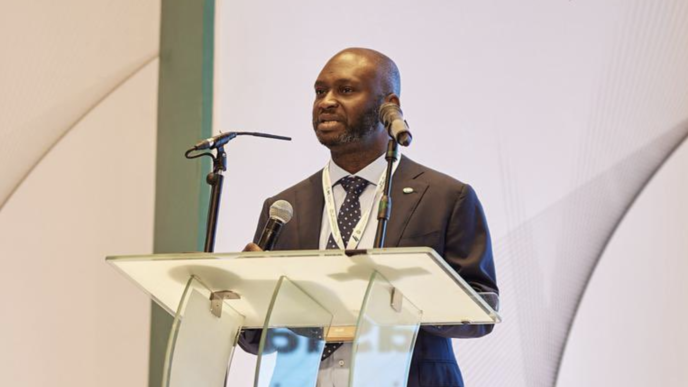The Securities and Exchange Commission (SEC) says achieving a $1 trillion economy is essential for Nigeria’s prosperity and resilience.
Emomotimi Agama, director-general (DG) of SEC, spoke on Tuesday at the 2024 SEC Journalists Academy, held in Lagos themed ‘The Role of the Capital Market in Driving Nigeria’s $1 Trillion Economy”.
Agama said achieving the goal requires a collective effort, with policymakers creating a supportive environment, businesses seizing market opportunities, and journalists conveying the market’s significance to the public.
“Achieving a N1 trillion economy is not merely an aspirational goal; it is a necessity for the prosperity and resilience of Nigeria,” Agama said.
Advertisement
“The capital market, as the financial backbone of our economy, is poised to drive this transformation.”
The DG, however, noted that the capital market’s full potential to drive a $1 trillion economy is being hindered by limited investor participation, regulatory challenges, and macroeconomic uncertainties.
He said the challenges must be addressed to unlock the capital market’s full potential in driving a $1 trillion economy.
Advertisement
Agama acknowledged that the capital market has played a significant role in advancing the nation’s economic development despite the obstacles.
‘FINANCING NATIONAL PROJECTS CRUCIAL PATHWAY TO ACHIEVING ECONOMIC TRANSFORMATION’
Agama said the federal government successfully raised substantial capital by issuing six sukuk bonds to fund road projects across the six geo-political zones.
He emphasised that financing essential national projects, particularly in infrastructure, is a crucial pathway to achieving economic transformation.
Advertisement
The DG noted that innovative financial instruments like sovereign bonds, green bonds, and sukuk have reduced Nigeria’s reliance on foreign loans while fostering job creation, improving logistics, and enhancing regional integration.
“The issuance of green bonds has further cemented the role of the capital market in supporting Nigeria’s transition to a low-carbon economy, addressing both infrastructure and environmental sustainability,” he said.
‘CAPITAL MARKET VITAL ENABLER OF PRIVATE SECTOR GROWTH’
Agama said the listing of companies like Dangote Cement and BUA Group highlights the capital market’s role in driving industrial expansion and creating employment opportunities.
Advertisement
“The total market capitalisation of the Nigerian Exchange Limited stood at N60 trillion by December 13, 2024, a testament to the growing role of the private sector in driving national economic outcomes,” the DG said.
“One of the most remarkable opportunities within the capital market is its ability to democratise wealth creation. Through vehicles like collective investment schemes, retail bonds, and exchange-traded funds, the market provides access to financial products for Nigerians across income levels.
Advertisement
“Beyond government financing, the capital market is a vital enabler of private sector growth.”
He added that companies in Nigeria had utilised the market to raise capital, expand operations, and compete globally.
Advertisement
“A prime example is MTN Nigeria, whose public offering in 2021 attracted significant local investor participation, broadening its shareholder base while showcasing the strength of our market,” he said.
“As we navigate the complexities of Nigeria’s economic landscape, the capital market emerges as a cornerstone in the pursuit of sustainable growth and development.
Advertisement
“The capital market is the engine that drives economic progress by channeling resources from savers to those who need capital for productive use.
“Globally, countries that have achieved economic milestones—whether in industrialisation, infrastructure, or innovation—have relied heavily on the capital market to mobilise and allocate resources efficiently.
“However, through concerted efforts by stakeholders—including the Securities and Exchange Commission, market operators, and policymakers—we are laying the foundation for an inclusive, efficient, and globally competitive capital market.”
‘FINTECH PLATFORMS HAVE SIMPLIFIED ACCESS TO INVESTMENT OPPORTUNITIES’
Agama stressed the importance of leveraging technology to improve market accessibility and participation.
He highlighted fintech platforms’ role in simplifying investment processes, boosting financial literacy, and driving inclusion.
“The Federal Government introduced the Savings Bond in a bid to expand the retail investor base in the bond markets and this has been well received by investors in recent times,” he said.
“The introduction of fintech platforms has further simplified access to investment opportunities, driving financial literacy and inclusion. Today, numerous retail investors actively participate in the Nigerian capital market—and we are committed to growing this participation.
“The role of the capital market also extends to state governments, offering a sustainable avenue for financing projects. Sub-nationals like Lagos, and Ogun states among others have leveraged bond issuances to fund infrastructure, education, and healthcare projects.
“These bonds not only enable states to execute developmental projects but also foster accountability and transparency, as market discipline demands robust reporting and monitoring mechanisms. Expanding this model across more states could unlock development at unprecedented scales, especially when paired with public-private partnerships.
“However, through concerted efforts by stakeholders—including the Securities and Exchange Commission, market operators, and policymakers—we are laying the foundation for an inclusive, efficient, and globally competitive capital market.”
Recognising the media’s influence, Agama urged journalists to play an active role in educating the public and dispelling misconceptions about the capital market.
Add a comment










